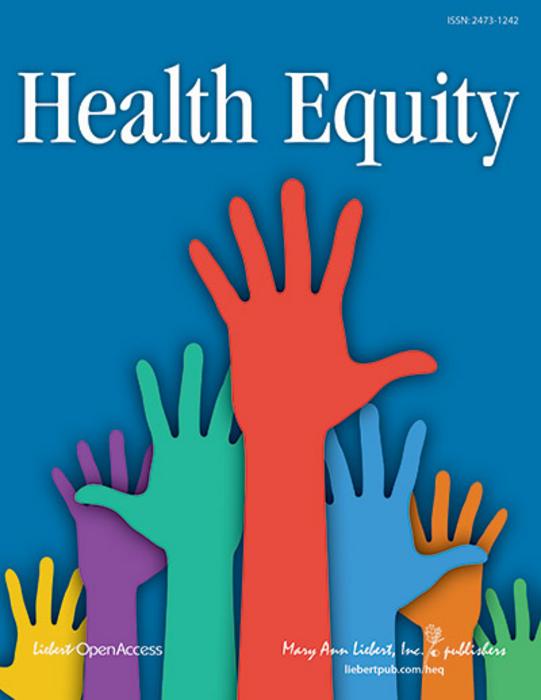A new Roundtable discussion in the peer-reviewed journal Health Equity explores the results of a poll conducted by the National Collaborative for Health Equity (NCHE), called the “Heart of America Annual Survey.” The survey found that more than 80% of respondents want a national leader that unifies rather than divides us, suggesting that there is a readiness in the country to put polarization and division behind us so that we can solve our collective and common challenges and problems. Click here to read the Roundtable now.

Credit: Mary Ann Liebert Inc., publishers
A new Roundtable discussion in the peer-reviewed journal Health Equity explores the results of a poll conducted by the National Collaborative for Health Equity (NCHE), called the “Heart of America Annual Survey.” The survey found that more than 80% of respondents want a national leader that unifies rather than divides us, suggesting that there is a readiness in the country to put polarization and division behind us so that we can solve our collective and common challenges and problems. Click here to read the Roundtable now.
Moderating the Roundtable is Gail Christopher, DN, Executive Director of the NCHE. The expert panel includes Brian Smedley, PhD, former Virginia Attorney General Mark Herring, and Susan Eaton, EdD, a professor, activist, and scholar; Mike Winger, an author and activist for racial equity, and Heather McGhee, a renowned thought leader and author.
Dr. Christopher raised the issue of the critical role that elected and appointed officials play in helping the nation move forward in overcoming the legacy of racism, racial hierarchy, and the actual codified belief in a false hierarchy of human value. She pointed to separation as the primary vehicle for maintaining racial hierarchy, with the second being the legal system and the third the economy. Dr. Susan Eaton provided examples of how the separation and inequalities we see in contemporary society are direct outgrowths of racial hierarchy ideology in the distant past, the recent past and today.
Heather McGhee explains that in writing her book The Sum of Us—What Racism Costs Everyone and How We Can Prosper Together” she learned “that racism in our politics and our making is so pervasive that it leaves no system that shapes our lives untouched, and in so doing, it creates a cost for everyone. One of the main vehicles for this racist thinking in our politics and our policy making is a zero-sum mindset.”
When asked how they would advise others based on their experiences, Mark Herring said, “I would also share with public officials that sometimes you are not even aware of the ways in which this work can make people’s lives better at the time you set out to do it. Going back to the overruling of prior attorney general opinions that were rooted in a false hierarchy…I heard from so many people how much it meant to them, especially those who had live through it or remembered stories from their parents who lived through it, to have an attorney general acknowledge the role attorneys general had—and the role the legal system had—in perpetuating racism and injustice and formally renouncing those opinions.”
About the Journal
Health Equity is a peer-reviewed open access journal that meets the urgent need for authoritative information about health disparities and health equity among vulnerable populations. With coverage ranging from translational research to prevention, diagnosis, treatment, and management of disease and illness, the Journal serves as a primary resource for organizations and individuals who serve these populations at the community, state, regional, tribal, and national levels. Complete information is available on the Health Equity website.
About the Publisher
Mary Ann Liebert, Inc. is a global media company dedicated to creating, curating, and delivering impactful peer-reviewed research and authoritative content services to advance the fields of biotechnology and the life sciences, specialized clinical medicine, and public health and policy. For complete information, please visit the Mary Ann Liebert, Inc. website.
Journal
Health Equity
DOI
10.1089/heq.2023.29041.nche
Method of Research
Survey
Subject of Research
People




